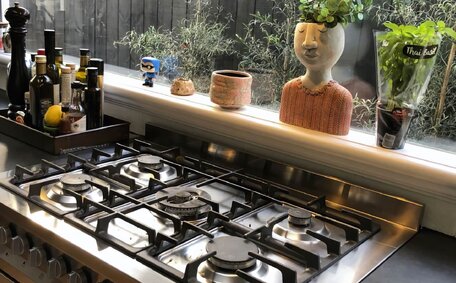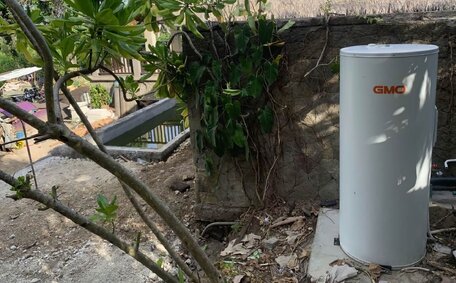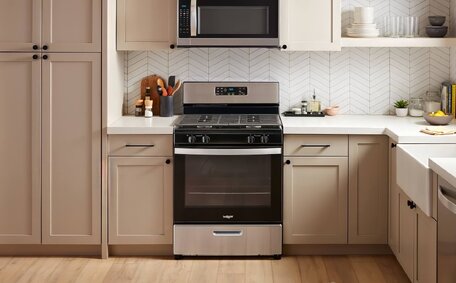
Financial Benefits of Natural Gas
Natural gas offers many financial perks over other energy sources. It burns cleaner and costs less than alternatives, helping lower monthly bills.
Read MorePlumbing pipe infrastructure plays an integral role in keeping industrial facilities running efficiently. However, recurring issues like pipe deterioration, blockages, leaks, and root intrusion can disrupt operations and prove costly to address. Trenchless pipe relining offers a non-invasive rehabilitation solution that avoids the need for extensive excavation or replacement.
In Sydney, our plumbing services deliver comprehensive relining solutions tailored for commercial establishments. Commercial plumbing solutions can help restore flow capacity, structural integrity, and performance of damaged pipes without disturbing your surrounding infrastructure.
The pipe relining process involves installing a new lining, like epoxy resin or CIPP, within compromised pipelines to repair leaks and cracks, and prevent further blockages.
When it comes to infrastructure upkeep, Sydney relining solutions often surpass traditional pipe replacement methods in speed, cost-effectiveness, and in minimising disruption to your business. Relining also delivers ongoing reinforcement, protecting against issues like corrosion, root intrusion, and buildup. For plumbing system repairs, pipe relining is recommended as an effective, long-lasting solution.
Industrial facilities, with their high usage demands and exposure to harsh conditions, benefit greatly from our expertise in commercial pipe relining. Common plumbing issues often require more than a quick fix; they include:
Pipe corrosion is notably common within drain and industrial pipe networks. Factors like chemical contact, moisture, temperature fluctuations, and gases speed up corrosion, leading to leaks, flow issues, and potential pipe failures.
Industrial processes often handle minerals that solidify inside pipes as scale. This causes flow restrictions within the pipe and is difficult to fully remove via basic drain cleaning methods.
Loose debris that finds its way into your plumbing can accumulate, leading to a blocked drain in entire sections. This interruption to productivity necessitates commercial pipe blockage removal.
Underground pipes near vegetation are prone to tree root infiltration at joints and cracks. Root incursion leading to blocked drains inside pipes are considerably disruptive to flow.
In colder climates, water may freeze and expand within pipes, causing cracks in the pipe walls. This causes major leaks once thawed.
Frequent piping complications precipitate a drop in productivity along with costly and extensive pipe repair services. Pipe rehabilitation through relining offers permanent reinforcement against these common issues without necessitating facility shutdowns.
Pipe relining revitalises ageing pipes from within, leveraging a trenchless repair technique. Pipe lining involves installing a structural epoxy coating or Cured-In-Place Pipe (CIPP) liner inside the existing pipeline to seal damage, restore flow and provide long-standing reinforcement.
The process starts with a detailed CCTV inspection, using specialised cameras to provide a comprehensive analysis. This ensures an accurate assessment of the pipe condition and size to craft an effective solution. We then utilise this visual data to develop a custom-designed relining Sydney solution for your pipelines.
The liner is either inverted or pulled into the damaged pipe via access points, eliminating any need to excavate the landscape.
Without the need to dig up or dismantle pipe sections, the liner bonds securely, creating a smooth interior surface that seals cracks and leaks while preventing further damage. Over time, a relined pipe’s durability is comparable to, if not better than new PVC pipe installations.
Pipe relining in Sydney’s eastern suburbs is fitting for all types of sewer pipe dimensions from 40mm to 1500mm across sewer line, stormwater, and vent systems. As a trenchless method that requires dig no work, it keeps surrounding infrastructure undisturbed, making it ideal for industrial settings. Facilities can continue partial or full operations with minor interruptions during the relining process.
By restoring pipe sewer function and flow capacity, pipe relining Sydney offers a way to carry out a long-term, economical solution to plumbing issues like blockages, root intrusion, and deterioration. It outlasts temporary drain cleaning fixes, maintaining reliable piping for years to come.
When comparing relining with pipe replacement, it’s clear that relining offers numerous advantages for pipe rehabilitation:
Pipe relining avoids the disruptive trench-digging and pipe dismantling often required. This prevents major disruptions to operations and avoids damage to the infrastructure of your home.
Relining eliminates excavation, call-out fees, restoration, and added labour costs, preserving both your property and your budget. It can be far more economical, typically requiring 30-50% less investment than full pipe replacement.
The robust materials used in pipe relining, such as epoxy and CIPP, ensure a long service life. Most liners come with a 50-year design life, proving to be stronger than even new pipe installations.
Pipe relining withstands significant stress, being resistant to elements and temperatures from -40°C to 200°C.
Covering diameters from 40mm to 1500mm, this environmentally friendly sewer relining modernises the drainage system and sewer pipelines alongside water, gas, fire sprinkler, and steam conduits across diverse settings.
With improved flow, long-term reinforcement, and minimal downtime, pipe relining stands as an advantageous and versatile pipe remediation solution for industrial facilities.
When evaluating pipe relining for industrial environments, facilities should consider factors such as:
Assess your operational processes to determine acceptable downtime for relining access and curing. This can allow for continued partial or full operations.
Pipe complexity, bends, junctions, and accessibility influence relining viability. CCTV inspections map pipe paths and dimensions to design custom liners.
The material and condition of the pipes influence the effectiveness of bonding during the relining process. Materials like cast iron, clay, and concrete are typically suitable for epoxy or CIPP relining.
Temperature, pressure, fluid properties, and potential chemical contact determine appropriate relining materials and installation methods.
Compare short and long-term costs of relining against replacement. Consider productivity losses from shutdowns and labour savings from trenchless methods.
Clients receive a detailed free quote and expert advice on tailored solutions to their specific pipe infrastructure requirements.
Determine if pipe relining is suitable for your facility by considering several essential factors. For an expert assessment, book an extensive pipe inspection and consultation with our team. Book your comprehensive pipe inspection and hot water system assessment with us. Our experts will be using CCTV technology to thoroughly map out your existing pipe layout and document dimensions, materials, connections and problem areas.
In general, facilities with the following are good candidates:
Our team carefully assesses site-specific conditions to recommend the best pipe relining solution for your needs. We determine compatible processes, access points, timing, materials and expected outcomes across your pipe infrastructure. With over 50 years combined relining experience, we ensure smooth installations and reliable long-term performance.
For a detailed consultation on pipe relining suitability for your industrial facility, email or call the team at Balmain Plumbing today.
Considering pipe relining costs shows substantial long-term savings compared to traditional replacement methods. Reducing the need for extensive excavation lowers costs associated with:
Pipe relining eliminates the intensive labour of dismantling and replacing pipes. It also minimises site restoration efforts, trenching, backfilling and resurfacing.
Only the relining materials are needed rather than entirely new piping. The quality work of applying Epoxy and CIPP liners proves to be very cost-effective.
By using existing access points and guaranteeing no mess is a factor during the process, relining accommodates various settings and reduces equipment rentals and potential service strikes.
Minimal downtime, gained through efficiency, means reduced productivity losses, ensuring the job was completed with commendable speed. Facilities can usually maintain operations during installation, which minimises disruption. There are also no extended outages from system testing, commissioning etc.
While pipe relining has a higher upfront cost than basic drain cleaning, it provides far more value over the long run. Relined pipes offer a service life exceeding 50 years, providing long-term savings by reducing the frequency of failures and repairs.
An advantage that was evident with pipe relining Sydney was very clear in the low maintenance requirements compared to traditional piping. Epoxy and CIPP liners, when installed with very professional precision, exhibit remarkable durability, obviating the typical deterioration and blockages that plague untreated pipes.
Nevertheless, periodic inspections ensure there’s no compromise on the longevity of relined pipes. We recommend the following:
Inspections should be performed using CCTV cameras to inspect relined pipe within your water system every 5 years. Technicians talk me through the liner’s condition, note potential problem areas, and clear any minor buildup.
Conduct intermittent flow tests on your pipe work to ensure there are no capacity issues. Transient pressure recorders help indicate pipeline health over extended periods.
Ensure manholes, rodding points, and junctions remain clear of debris/buildup for camera and cleaning access when needed.
Regular inspections and maintenance help maintain plumbing efficiency and ensure relined pipes perform excellently for over 50 years. For maintenance advice or repairs that extend your pipe infrastructure lifespan, contact our experienced team.
Natural gas offers many financial perks over other energy sources. It burns cleaner and costs less than alternatives, helping lower monthly bills.
Read MoreChoosing the correct hot water system size involves considering factors like number of household members, number of bathrooms, peak usage times and daily hot water needs per person. Our guide helps determine the right system capacity.
Read MoreHaving trouble with your gas water heater not heating properly? The pilot light may have gone out. Follow our clear guide on relighting your gas water heater’s pilot light in 6 easy steps. Or call the friendly experts at Balmain Plumbing if you need assistance relighting your pilot.
Read MoreBalmain, 2041 NSW
We will call back as soon as possible.




